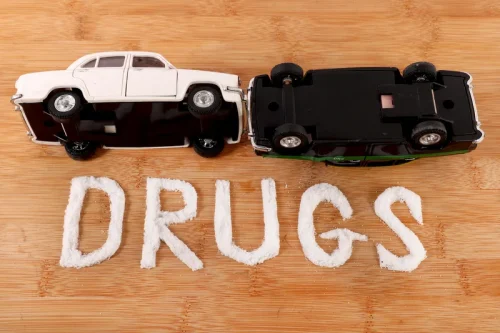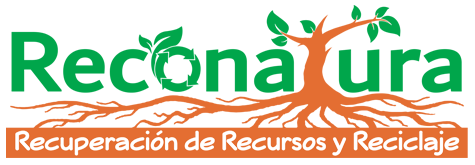Tips for Celebrating the Holidays with Recovering Family Members and Friends

If you or family relapses in recovery this holiday, Recovery Unplugged is waiting to help them and your loved ones get back on track. Stop Covering Up – Enabling is also when family members try to hide their loved ones’ substance use problems from others. Chances are, other members of the family or close friends are already very aware of the problems, and efforts to cover things up won’t be successful. Addiction is a disease and treating it like a secret or acting embarrassed about it may delay recovery or make things worse.
What are the Outcomes of Medication Assisted Treatment (MAT)?
One of these reasons likely includes becoming healthier for your family, friends and loved ones. While it can be difficult to be in treatment during the holidays, know that the hard work you’re doing now can bring you to a better future. The holiday season revolves around unrelenting themes of gratitude, abundance, and celebration. Make them feel included in plans and if you know they are struggling, suggest they attend a meeting or call a sponsor.
- For example, the traditions and rituals that you celebrate with your loved ones may bring to mind those who are no longer with you, which is bittersweet.
- Discover essential substance use disorder resources to support recovery and find hope in challenging times.
- Additionally, always remind yourself of the reasons you chose sobriety in the first place.
- For individuals in early recovery, staying sober can be a challenging task at any time of the year.
- If another trigger is family conflict, then if and when conflict arises, an individual can rely on mindfulness techniques to work through it.
Startling Drug Overdose Death Statistics & Facts
Exposure or access to drugs or alcohol that were previously used can ignite urges and cravings. Stress can intensify the need to self-medicate and escape from painful emotional states. It may help to ask a loved one how they will feel if others are drinking alcohol and explore ways to have an alcohol-free event. If a loved one says they don’t feel comfortable coming to a gathering with alcohol, that can be honored. The festive season, with its merry celebrations and family gatherings, can be a challenging time for those in recovery.

Ways to Take Care Of Your Mental Health
Keeping a gratitude journal can help you process complex emotions while also celebrating your progress in recovery. By planning ahead with these strategies, you’re setting yourself up for a more joyous and sober holiday experience. If you will be serving alcohol, check to see if your invitee is comfortable with that. Note, even if you’re willing to host an alcohol-free holiday event, your family member or friend might not be comfortable attending if alcohol is not served simply because he or she is present.
- If things don’t feel right, you might need to excuse yourself quickly.
- The thought of attending additional social commitments and family gatherings may bring about feelings of distress and overwhelm.
- In advance of each gathering, it’s essential to strategize how to manage potential triggers.
- This includes characterizing events that embody a lower risk of alcoholic exposure and engaging in discussions with supportive friends or family about your intentions to remain sober.
- Some plan extra therapy sessions before the holidays to try to smooth things over in advance.
- Although you can be their advocate and offer support, you must also learn to respect their independence and ability to make their own decisions.
However, there are several things that family members can do to be supportive. You can request that the family keep holiday plans simple if larger family gatherings trigger you. If they must host larger events and serve alcohol, ask if you could skip the gathering. Meetings offer a safe https://ecosoberhouse.com/ space to share experiences, learn coping strategies, and connect with others facing similar challenges. Engaging with peers not only fosters a sense of belonging but also reinforces commitment to sobriety. For those who may not feel comfortable attending in-person meetings, online support groups provide a flexible alternative.

- This is normal, but it’s good to have an idea of what you’ll do when things get rough.
- The holidays can be difficult for many people, but those who are newly sober face even greater challenges.
- These are the people who can provide you with the emotional support you need to enjoy a stable recovery period.
- It should be noted, though, that these beverages generally do include small amounts of alcohol.
- It’s fine to bring a friend as sober support or to call someone from a support group if you need to talk.
- As individuals begin the process of recovery, they pass through multiple stages of recognizing needs and making changes in their thoughts, feelings, behaviors, patterns of self-care and healing.
Reach out to Adelante Recovery Center today and let us be a part of your journey to lasting recovery. If you need help during the holidays, you can always contact a mental health counselor or treatment center. Recovery from addiction is difficult, even more so during this time of year.
The healing power of relationships, trust, love and connection is one of the most important tools for families. Damage to trust reframing holidays in early recovery and connection is often at the root of traumatic events that lead to disruptions in the brain’s ability to self-regulate physiologically and emotionally. Trauma can be the loss of connection to one’s self as well as well as the loss of critical psychological connectedness between humans. It is intensely painful to be disconnected from the ones we love, and reconnecting in relationships has the power to transform recovery and the resiliency needed for sustained sobriety. The winter holidays are usually a time of celebration, but for those in recovery, they can also bring added challenges. With the pressure of social gatherings, heightened expectations, and the overall emphasis on happiness, the holiday season can test your commitment to recovery in ways that other times of the year don’t.
Tips for People in Inpatient Programs

The holidays drug addiction treatment are a challenging time of year emotionally for many people. For as much as happy memories and goodwill are promoted, many people experience quite the opposite. One of the factors that cause so many negative experiences and emotions is the amount of alcohol and other substances consumed during this time of the year. Both the emotional factors and the increased availability of substances make the holidays a time of increased chance of relapse for individuals in recovery.
Importance of planning for events
Getting creative and increasing healthy patterns of communication is way to show you love them. To keep from dwelling on the difficulty of changing your life and leaving drugs or alcohol behind, try to enrich your time with new activities that could even become new holiday traditions. Some good ideas that you could try are things like restorative yoga or art therapy, but you can test out new hobbies that can also be therapeutic like wood carving, ice skating, cooking, or hiking. 12-step programs create an environment that promotes emotional safety, where people have the experience of feeling understood and accepted. As you prepare reframing holidays in early recovery for the upcoming holidays, do it with support and awareness. Utilize the above coping tools and self-care strategies to support your early recovery during the holidays.

Having these ready can make declining alcohol more seamless, ensuring you can maintain your boundaries effectively. Have a plan for the holiday, including mutual aid meetings and calls to those central to your recovery. Here are some general strategies for reframing holidays and creating successful sober celebrations. However, just because these emotions can be too much to handle, they are not excuses to rationalize a slip. • If you’ll be seeing relatives who don’t know your family member has just completed treatment, prepare beforehand as to who will communicate the information in a way your family member is comfortable.

